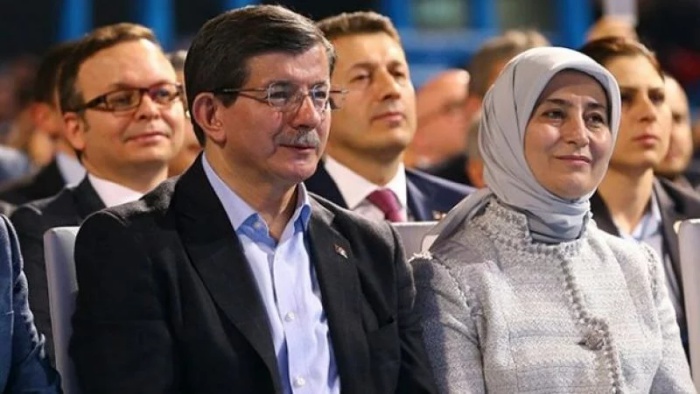A criminal complaint has been filed against former Turkish Prime Minister Ahmet Davutoğlu on charges of failing to report a crime to the authorities due to his recent remarks about successive terrorist attacks in the summer of 2015, Turkish media outlets reported on Monday.
Davutoğlu, who has parted ways with his former ruling Justice and Development Party (AKP) and is planning to establish a rival party, sparked a debate last Friday when he said the period between June and November 2015, which saw a series of terrorist attacks, was historically the most critical timeframe of the Turkish Republic.
“If the books on the fight against terror are opened, people who criticized us won’t be able to show themselves in public,” Davutoğlu said at a political convention in Sakarya province.
His remarks were interpreted as suggesting that some ruling politicians had prior knowledge of the attacks or deliberately failed to prevent them so that an environment of chaos would take hold in the country, the public would be frightened and the AKP, which lost in a general election in June of that year, would be returned to power.
A former member of the main opposition Republican People’s Party (CHP), Hüseyin Avni Sipahi, who also ran as a mayoral candidate from the Democrat Party in the March 31 local elections, filed the complaint against Davutoğlu, claiming that he committed the crime of “failing to report a crime,” as stated in the 278th Article of the Turkish Penal Code (TCK), and hence should be punished.
Sipahi alleged in the complaint that 862 people lost their lives in terrorist attacks in the summer of 2015 when Davutoğlu was prime minister.
In June 2015 the AKP lost its majority in a general election for the first time since 2002, while the Kurdish Peoples’ Democratic Party (HDP) garnered over 10 percent of the vote and entered the Turkish parliament for the first time in its history.
Soon after the election President Recep Tayyip Erdoğan halted peace talks with the terrorist Kurdistan Workers’ Party (PKK) and launched a massive counterterrorism operation in Turkey’s southeastern region, eventually causing dozens of civilian deaths and the destruction of some residential parts of the predominantly Kurdish provinces.
Meanwhile, the AKP and main opposition party had talks to form a government, but President Erdoğan had repeatedly expressed his desire to hold another election.
Nationalist Movement Party (MHP) leader Devlet Bahçeli, who is known for his hawkish stance against the Kurds, also had rejected offers from the main opposition Republican People’s Party (CHP) to form a government with the support of the Kurdish party.
Later the Turkish parliament decided to hold new elections on Nov. 1, 2015.
Between June and November of that year, Turkey survived a number of terrorist attacks by the Islamic State in Iraq and the Levant (ISIL) that left 136 people dead.
Clashes with the PKK in the same period had also caused the death of nearly 170 security force members.
According to observers, that summer diverted public concern from the economy and authoritarian rule to national security, ultimately increasing public support for the ruling AKP in November.
The Turkish opposition believes the ruling party deliberately overlooked the terrorist threats in that period for political gain as well as initiating a fight against the PKK by abruptly stopping peace talks.

